-
 ompiled by Sheikh Tosun Bayrak al-Jerrahi al-Halveti Here is a contemporary presentation of the ninety-nine names of God according to the Islamic Sufi tradition. Compiled from the original Arabic and Turkish text of Al-Ghazzali, Ibn 'Arabi, Djili, and Abdulkadir Geylani, among others, this is the most extensive presentation available to readers in any Western language.
ompiled by Sheikh Tosun Bayrak al-Jerrahi al-Halveti Here is a contemporary presentation of the ninety-nine names of God according to the Islamic Sufi tradition. Compiled from the original Arabic and Turkish text of Al-Ghazzali, Ibn 'Arabi, Djili, and Abdulkadir Geylani, among others, this is the most extensive presentation available to readers in any Western language. -
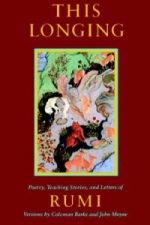
Poetry, Teaching Stories and Selected Letters of Rumi
Versions by John Moyne and Coleman Barks Yet another dimension of Rumi is revealed in these teaching poems from the Mathnawi, Rumi's most mature work. Also included are personal letters which have never before been available in a Western language. -
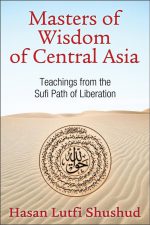 By Hasan Lutfi Shushud Almost one thousand years ago a nexus of spiritual transmission emerged in Central Asia and lasted for five centuries. This classic work lays out the entire lineage of teachers from the golden age of Islamic Sufism, examining their spiritual journeys, their writings and teachings, and their most famous sayings. Hasan Lutfi Shushud (1902-1988) was born near Izmir in Anatolia, Turkey. A renowned Sufi saint and master, he was perhaps best known for his role as final guide to Gurdjieff’s disciple J. G. Bennett.
By Hasan Lutfi Shushud Almost one thousand years ago a nexus of spiritual transmission emerged in Central Asia and lasted for five centuries. This classic work lays out the entire lineage of teachers from the golden age of Islamic Sufism, examining their spiritual journeys, their writings and teachings, and their most famous sayings. Hasan Lutfi Shushud (1902-1988) was born near Izmir in Anatolia, Turkey. A renowned Sufi saint and master, he was perhaps best known for his role as final guide to Gurdjieff’s disciple J. G. Bennett. -
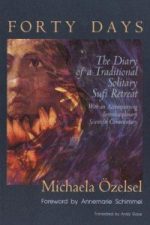
A Diary of a Traditional Sufi Retreat
By Michaela Ozelsel This first-hand account of a Sufi halvet (forty day retreat) is unique because it combines an autobiographical account of a spiritual education with contemporary research from several disciplines, thus being a bridge between ancient wisdom and scientific investigation. -
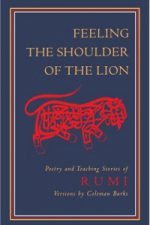
Poetry and Teaching Stories from the Mathnawi of Mevlana Jalaluddin Rumi
Versions by Coleman Barks These selections from the poetry of Rumi express the courage and intensity needed to overcome our ego-imprisonment. Much of Rumi's poetry circles around the mystery of Surrender. Some of it expresses a longing and even a bewilderment, but there is also much that expresses the discipline, clarity, and integrity that true Surrender requires. -
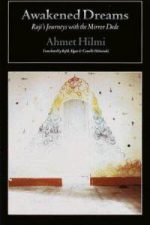
Raji's Journeys with the Mirror Dede
By Ahmet Hilmi Awakened Dreams was written in the early 1900's at the end of the Ottoman era by Ahmet Hilmi -- humorist, revolutionary, and Sufi mystic. In this allegory of the soul's transformation, a confused and dissolute young man meets a wise mentor in a cemetery and is guided through a series of revelatory experiences. Raji meets Buddha, Zoroaster, and other prophets, experiences himself in strange new worlds, and journeys through the levels of spiritual attainment. Awakened Dreams has been used a teaching tool in various Sufi traditions for the last ninety years. -
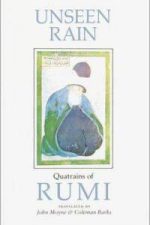
Quatrains of Rumi
Versions by John Moyne and Coleman Barks Rumi's short poems have many tones and effects: some of them are quick, joyful, and whimsical; some are finely faceted abstract statements; some probe the inward space of patience and longing. Moyne and Barks translated these poems using a free-verse style, connecting these poems with great American spiritual poets such as Walt Whitman and Gary Snyder. -
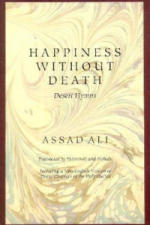
Desert Hymns
By Dr. Assad Ali The voice of these poems is the voice of the Desert in an ardent appeal to the heart of Reality. Each of these poems is also a lesson in higher education from a loving teacher, the Desert. As Dr. Ali himself says, "These hymns have not been written to address any one of the creatures, even though they are exuberant with creatures' concerns, and their true interest is in them and in appealing to God for them. They have been written in a method similar to physical training, but as spiritual training in the world of the body and the Word." -
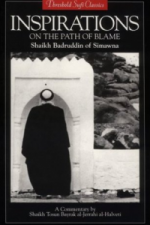 By Shaikh Badruddin of Simawna Commentary and translation by Tosun Bayrak al-Jerrahi In Inspirations (Waridat), Shaikh Badruddin interpreted many essential concepts of Islamic theology in an original and personal way which seems strikingly meaningful today. Melamiyya, or the "path of blame," is an approach to spiritual development within Islamic Sufism that avoids the appearance of piety and challenges the self-satisfaction of the ego.
By Shaikh Badruddin of Simawna Commentary and translation by Tosun Bayrak al-Jerrahi In Inspirations (Waridat), Shaikh Badruddin interpreted many essential concepts of Islamic theology in an original and personal way which seems strikingly meaningful today. Melamiyya, or the "path of blame," is an approach to spiritual development within Islamic Sufism that avoids the appearance of piety and challenges the self-satisfaction of the ego. -
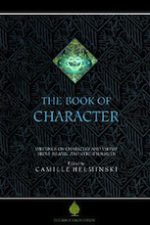
Writings on Character and Virtue from Islamic and other sources
By Camille Helminski This anthology of writings on virtue and character from Islamic and other traditions has received universal praise internationally. This book will give a profound insight into the qualities of mercy, tenderness, generosity, and nobility that are at the heart of Islamic tradition at its best--virtues which are essentially universal. From the Prophet Muhammad and Imam Ali to Florence Nightingale and Mother Teresa. -
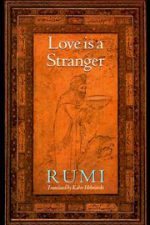 By Jalaluddin Rumi Translated by Kabir Helminski Jalaluddin Rumi, one of the greatest mystics and poets the world has ever known, said, "love is a stranger and speaks a strange language." And yet Rumi's message of spiritual love speaks directly to our hearts after more than seven hundred years. This volume contains most of the earlier The Ruins of the Heart in revised form as well as an equal amount of new translations. A quintessential collection.
By Jalaluddin Rumi Translated by Kabir Helminski Jalaluddin Rumi, one of the greatest mystics and poets the world has ever known, said, "love is a stranger and speaks a strange language." And yet Rumi's message of spiritual love speaks directly to our hearts after more than seven hundred years. This volume contains most of the earlier The Ruins of the Heart in revised form as well as an equal amount of new translations. A quintessential collection.


